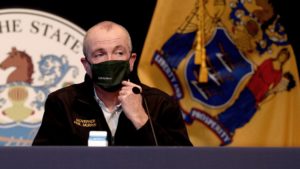Here’s a quandary for NJ’s school boards: the new Anti-Harassment, Bullying, and Intimidation (HIB) legislation has blurred the line between student behavior on and off school grounds because schools are obligated to investigate incidents of bullying regardless of where and when they take place. But a just-released decision by a NJ Appellate Court overrules a policy by the Ramapo-Indian Hills School Board that students could be barred from extra-curricular activities if they engage in misconduct anytime and anywhere. (See coverage from Star-Ledger, Courier-Post, and NJ Spotlight.)
Back in November 2010, in response to the suicide of Rutgers student Tyler Clementi, Gov. Christie signed into the law NJ’s HIB law. Here’s the relevant part of the bill:
[A]ny gesture, any written, verbal or physical act, or any electronic communication, whether it be a single incident or series of incidents, that is reasonably perceived as being motivated either by any actual or perceived characteristic… that takes place on school property, at any school-sponsored function, on a school bus, or off school grounds … that substantially disrupts or interferes with the orderly operation of the school or the rights of other students, and that a reasonable person should know, under the circumstances, will have the effect of physically or emotionally harming a student or damaging a student’s property, or placing a student in reasonable fear of physical or emotional harm to his person or damage his property.
In other words, NJ schools must investigate and discipline students for HIB violations even if the behavior occurs “off school grounds.” Indian Hills-Ramapo cast its policy in the same light, but the Court said that the district, according to NJ Spotlight, “failed to make a direct connection between students’ outside actions and the operation of their schools, what it called a critical ‘nexus’ required in defining the scope of a district’s powers.”
The ACLU filed an amicus brief stating the school district had “overstepped its bounds.” New Jersey School Boards backed the district.
The ruling points to the conundrum NJ schools face when dealing with inappropriate behavior that occurs outside of school. How broad is the reach of public schools once the bell has dismissed students? What are the responsibilities of a district in controlling student behavior in their homes and communities?
The Ramapo-Indian Hills policy has been struck down and the Board there now may be in hole for, according to the Courier-Post, “hundreds of thousands of dollars” in legal fees and “possibly damages to the students who were subjected to this invalid policy.”
On the one hand, there’s the HIB legislation, which puts schools, for better or worse, in the role of policing student behavior off-campus. On the other hand, there’s the Appellate Court decision which, according to ACLU-NJ legal director Ed Barocas, rules that “schools play a dominant role for most children, but that unique status does not grant them carte blanche in the lives of students. Unless a student’s behavior outside of school directly and substantially disrupts the school, discipline rests with the parents and the juvenile justice system.” That line demarcating a district’s responsibility over student behavior just became a little fuzzier.


